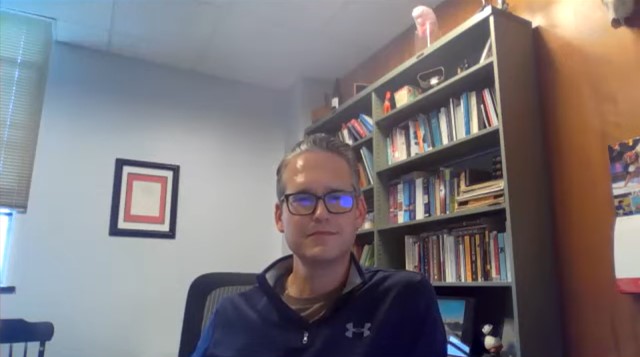I recently had the chance to sit down and talk about science and Zen with Berry Crawford, for his Simplicity Zen podcast. I have enjoyed Berry’s conversations with Zen practitioners, and I was delighted to talk about my own experience with Zen, and about our shared interest in science. The full interview is below, and you can also find Simplicity Zen wherever you get your podcasts:
I hope that you enjoy the interview, and after reflecting on our conversation, I would just add a couple of points. As I’ve worked on this blog to express my own understanding of science and Zen, I feel that there are a couple of points that have been important for my own practice.
The first is that for me, personally, it is important that the various ways that I understand (and make sense of) the world are not in conflict. As an overly simplistic example, I would personally struggle to hold on one hand a system of beliefs that claimed the Earth was flat, or that our planet was only a few thousand years old, and then on the other hand to also accept findings from astronomy, geology, evolutionary biology. The incongruence, the fundamental incompatibility, between these systems is too much for me.
So, some of my own reflections about science and Zen are about how I have probed and poked at my own understanding. I’ve been working to take a careful look at their basic compatibility, and for how I would express teachings from Zen using my own knowledge of science, and especially in the areas of neuroscience and psychology. This has been a useful exercise for me, and helped me deepen my own practice.
The second point, which I also think is very important, is that I see science as only one way (out of a great many) that we can make sense of the reality we find ourselves in. Like other belief systems, science helps explain the world, and to help us to act effectively in that world. Beyond science, there certainly are other systems for explaining the world and how it works, and people can live well, and humanely, with very little appreciation for science as a discipline. And, at least when it comes to questions of ethics and morality, I am not very concerned about whether or not people believe in science. I care about how people live.
And, if people can believe that the world is flat, or that the Earth is only a few thousand years old, and they also live their lives in a way that is kind? If so, then the specifics of their beliefs don’t matter to me. At least not in this area. In other areas, it may matter quite a bit. For instance, if you want to become a pilot, or a geologist, or work in any number of careers, then science and the knowledge it has generated will be critical to your success.
My own personal commitment to science comes from the power of the approach: when we live up to our ideals, as scientists, we can see very far into the workings of the world, and can use that information to improve the lives of all beings.
However, in the deepest sense, every system we use (science included) to understand reality will always be limited, as I reflected on in an earlier post. We create a set of concepts, or labels, that we use to pin reality down and make sense of it. I see myself as one thing, and you as another. I see my home, and all of the structures that make it up. I see how problems can arise in my body, or in the function of my home, and I look for potential solutions. Those systems are very useful to us – it is hard to imagine how we could function in the world without them. In the end though, what we treat as fixed things – me, you, a house – are dynamic, ever-changing. Our bodies are constantly in flux, and we are truly more patterns than things.
In our practice, can drop these systems? Can we let them soften, dissolve, even for a moment? That is the challenge for me: to see how not only how I understand Zen teachings within the framework of science, but also how to set down that framework, to put it aside.
